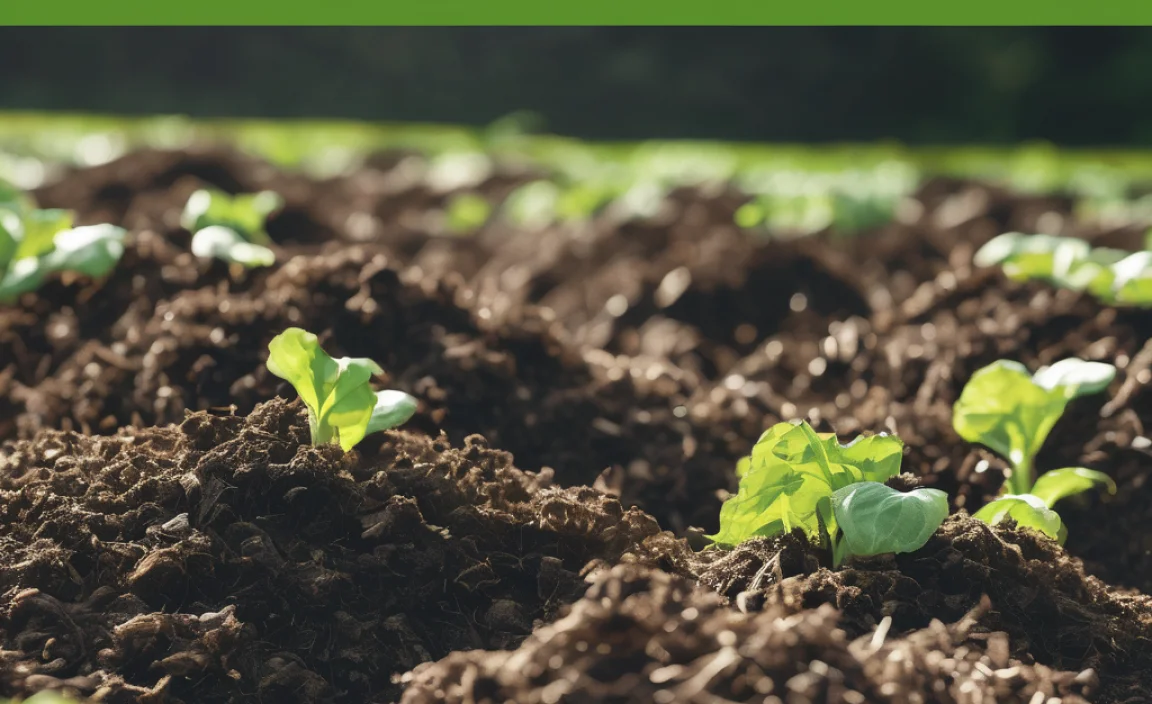Eating toilet paper can cause digestive issues like constipation and blockages. Your body can’t digest it, so it provides no nutrients. Regularly eating toilet paper may signal an underlying psychological issue like PICA, which needs professional help. It’s definitely not good for you!
Ever wondered what happens if you eat toilet paper? It’s a strange thought, right? But sometimes, curiosity gets the better of us. Maybe you’ve seen it happen, or perhaps you’re even dealing with this yourself. Either way, it’s important to know the facts. Eating toilet paper isn’t something to take lightly, and understanding the effects can help you make informed decisions or seek the right support. Let’s get into what eating toilet paper does to your body, step by step.
We’ll look at the immediate and long-term effects. Plus, we’ll explore why someone might eat toilet paper and what you can do about it. Let’s dive in!
Why Eating Toilet Paper is a Bad Idea
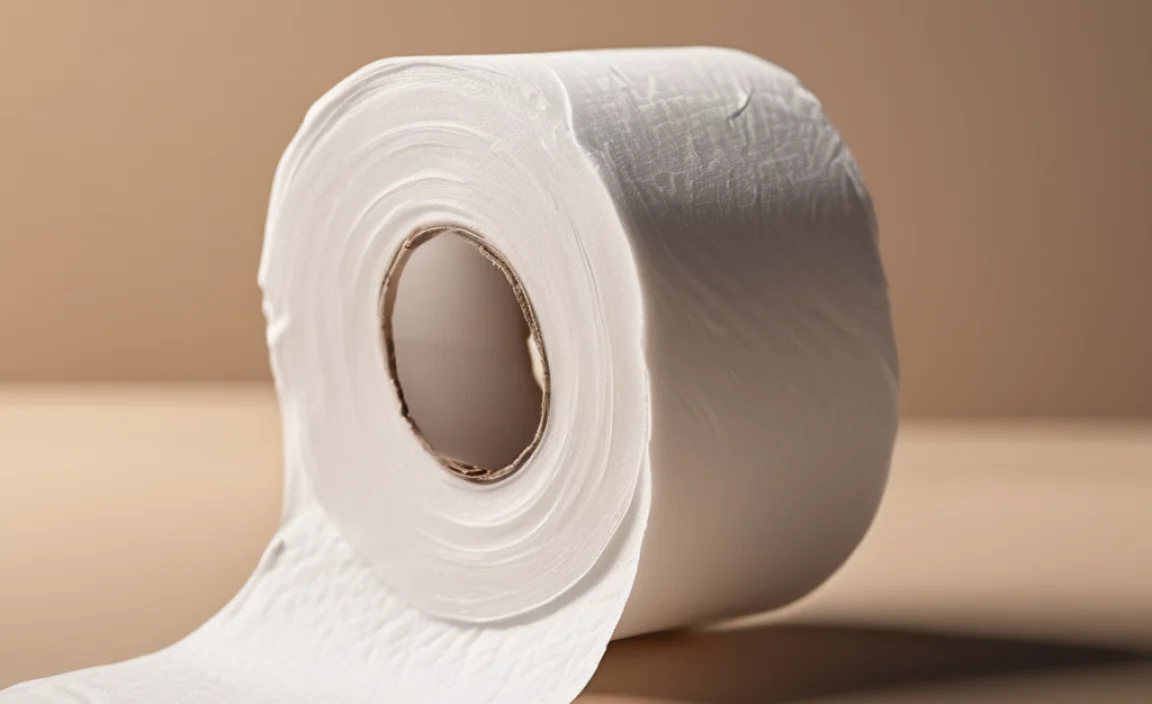
Toilet paper isn’t food. It’s made to be flushed, not eaten. Here’s why munching on it is a bad idea:
- No Nutrients: Toilet paper has zero nutritional value. Your body gets nothing good from it.
- Digestive Problems: It can cause constipation, blockages, and other tummy troubles.
- Chemicals: Toilet paper often contains chemicals and dyes that aren’t meant to be ingested.
- Hygiene: It’s made for the bathroom, not the kitchen. It’s not clean!
What Happens When You Eat Toilet Paper?
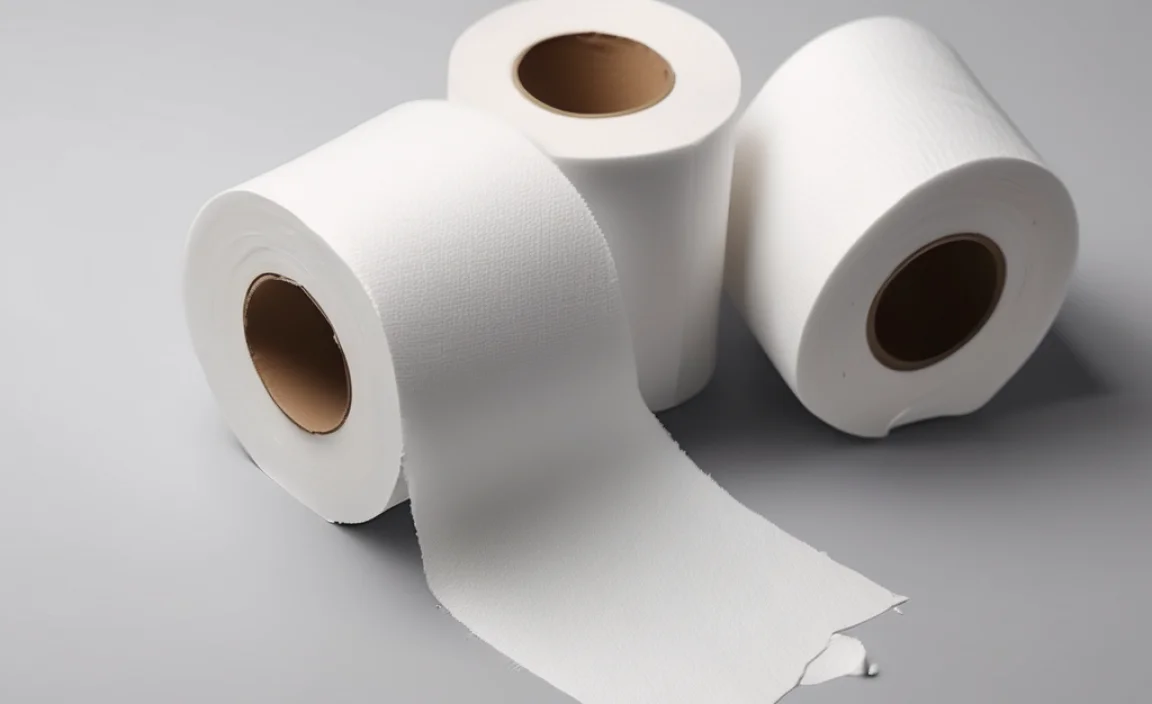
Okay, so you ate some toilet paper. What now? Here’s a breakdown of what might happen:
Immediate Effects
- Taste and Texture: It probably doesn’t taste very good. The texture is likely dry and papery.
- Gag Reflex: Your body might try to reject it immediately.
- Stomach Discomfort: You might feel a bit queasy or have a stomach ache.
Short-Term Effects
- Constipation: Toilet paper can be hard to pass, leading to constipation.
- Bloating: You might feel bloated and uncomfortable.
- Reduced Appetite: You might not feel like eating anything else.
Long-Term Effects
- Intestinal Blockage: Over time, eating a lot of toilet paper can cause a blockage in your intestines.
- Malnutrition: If you’re eating toilet paper instead of real food, you’ll miss out on essential nutrients.
- PICA: Regularly craving and eating non-food items can be a sign of PICA, a psychological disorder.
The Science Behind It: Why Can’t We Digest Toilet Paper?
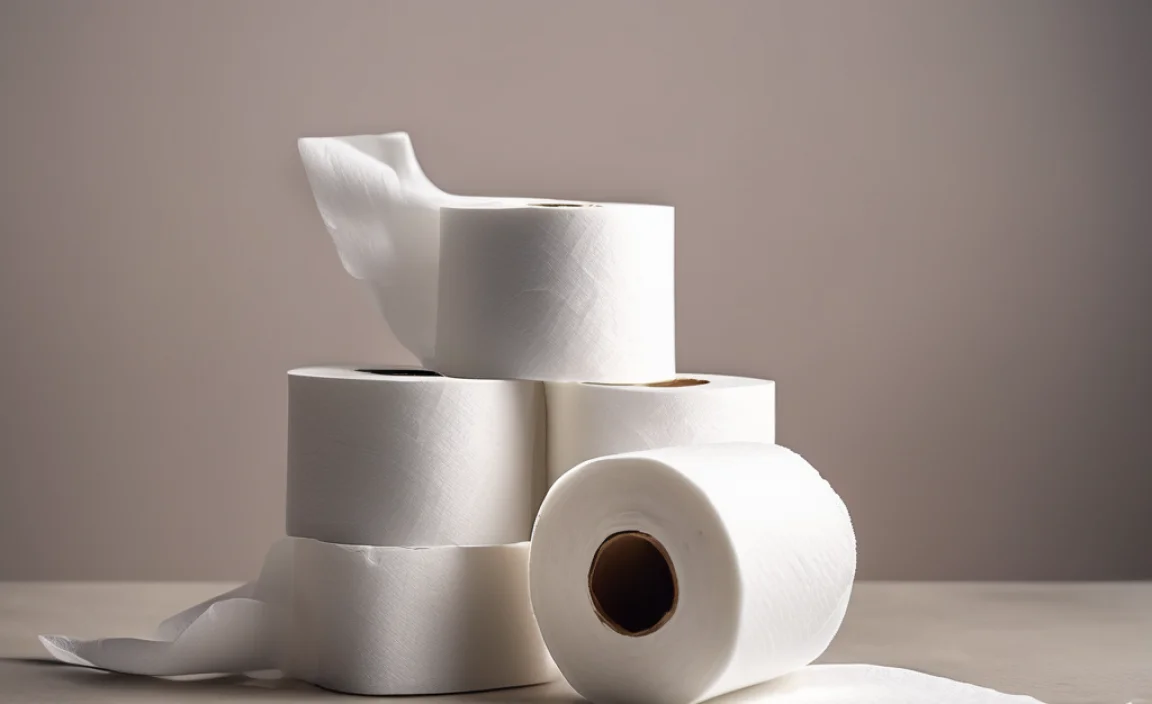
Our bodies are designed to break down food, extracting nutrients and energy. But toilet paper? That’s a different story. Here’s the science behind why our digestive system struggles with it:
Cellulose: The Culprit
Toilet paper is primarily made of cellulose, a complex carbohydrate found in plants. While some animals, like cows, have special enzymes to break down cellulose, humans don’t. This means we can’t digest it properly.
Lack of Enzymes
Our bodies produce enzymes to break down proteins, fats, and simple carbohydrates. But we lack the necessary enzymes to break down cellulose efficiently. As a result, toilet paper passes through our digestive system largely undigested.
No Nutritional Value
Even if we could break down cellulose, it wouldn’t provide us with any significant nutrients. Cellulose is a type of fiber, which can be beneficial in small amounts, but toilet paper isn’t a good source. It’s like eating pure, unadulterated fiber without any vitamins, minerals, or energy.
Potential Health Risks of Eating Toilet Paper
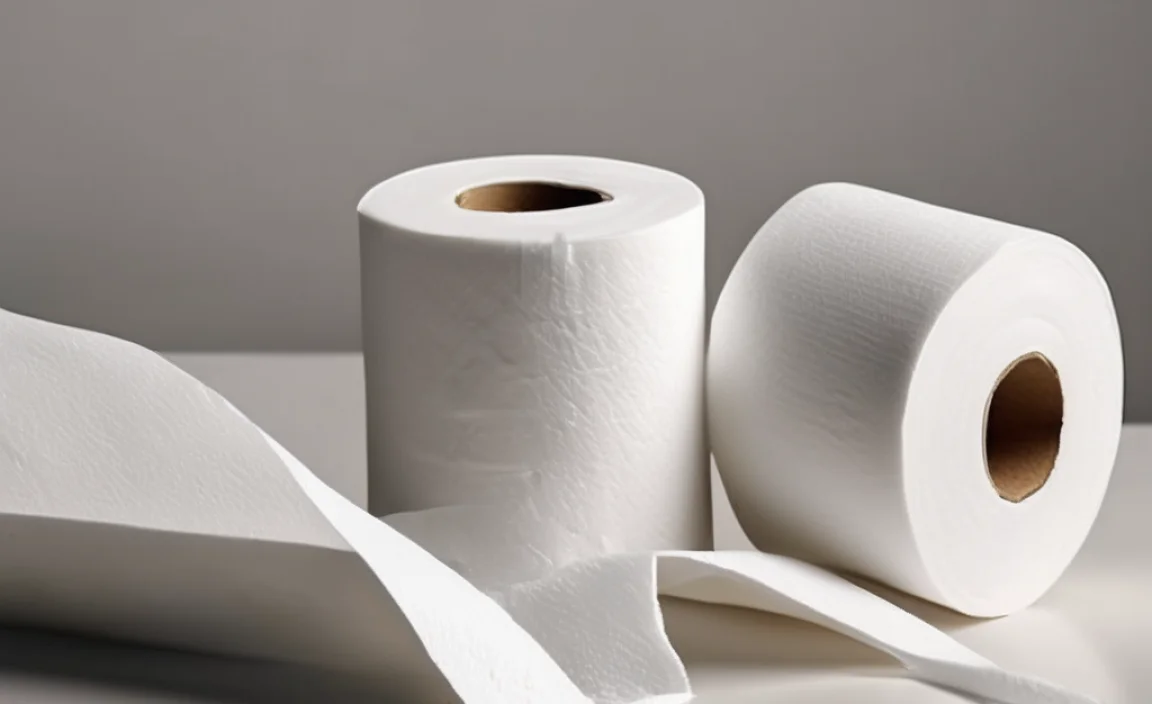
Eating toilet paper isn’t just a harmless quirk; it can lead to several health risks. Here’s a detailed look at what you need to be aware of:
Digestive Issues
- Constipation: Toilet paper is difficult to digest and can bulk up in your intestines, leading to constipation.
- Blockages: In severe cases, eating large amounts of toilet paper can cause intestinal blockages, which may require medical intervention.
- Irritable Bowel Syndrome (IBS): The added stress on your digestive system can exacerbate symptoms of IBS, such as bloating, gas, and abdominal pain.
Exposure to Harmful Substances
- Chemicals: Toilet paper often contains chemicals like bleach, formaldehyde, and dyes, which can be harmful if ingested. These substances can irritate the digestive tract and potentially lead to more serious health issues over time.
- Bacteria: Even unused toilet paper can harbor bacteria, especially if it’s stored in a damp or unsanitary environment. Eating it can introduce these bacteria into your body, increasing the risk of infection.
Nutritional Deficiencies
- Malnutrition: If you’re eating toilet paper regularly, it can interfere with your ability to absorb essential nutrients from food. This can lead to malnutrition, which can cause a range of health problems, including fatigue, weakened immune system, and developmental delays in children.
- Iron Deficiency: Eating non-food items can sometimes indicate an underlying iron deficiency. If you’re craving toilet paper, it’s worth getting your iron levels checked by a doctor.
Psychological Issues
- PICA: Craving and eating non-food items like toilet paper is a hallmark of PICA, a psychological disorder that can be caused by nutritional deficiencies, stress, or mental health issues. PICA can lead to serious health complications if left untreated.
- Anxiety and Stress: Sometimes, eating toilet paper can be a coping mechanism for anxiety or stress. Addressing the underlying psychological issues is crucial for stopping the behavior.
Why Do People Eat Toilet Paper?
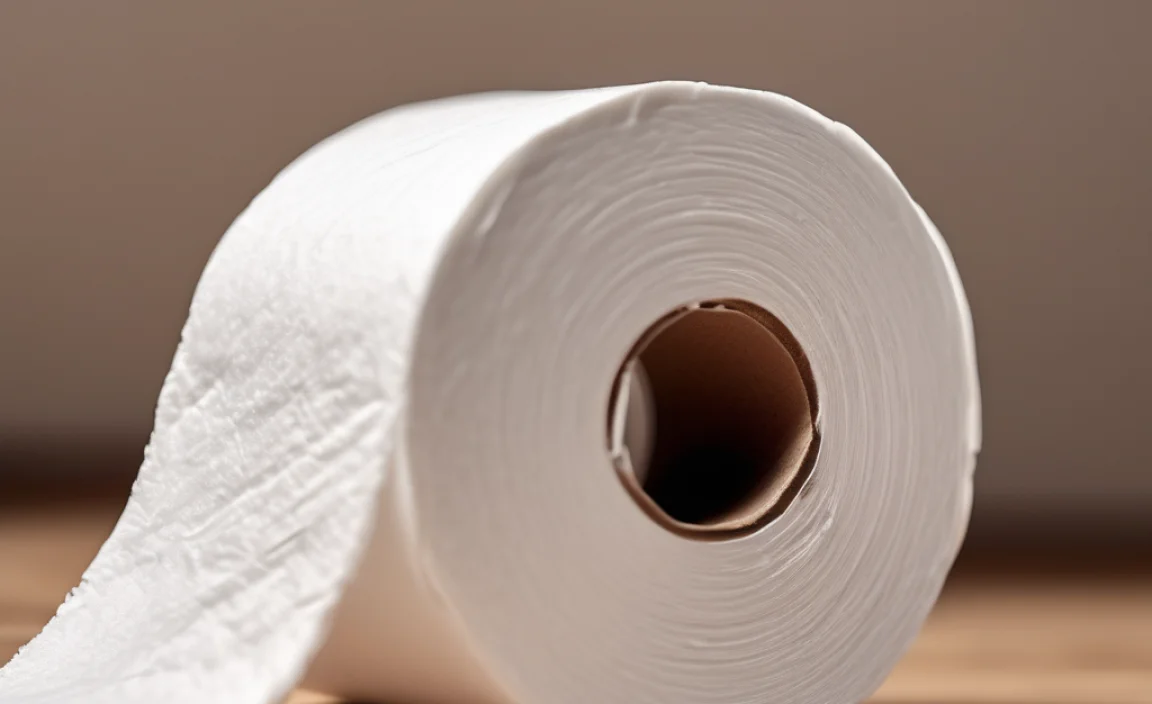
It might seem strange, but there are reasons why someone might eat toilet paper:
- PICA: This is a condition where people crave non-food items. It can be caused by nutritional deficiencies or mental health issues.
- Stress or Anxiety: Some people turn to eating non-food items as a way to cope with stress or anxiety.
- Sensory Seeking: Some individuals, especially those with sensory processing issues, might be drawn to the texture or feel of toilet paper.
- Curiosity: Especially in young children, it might just be curiosity.
What is PICA?
PICA is an eating disorder characterized by persistent eating of non-nutritive substances for a period of at least one month. These substances can include:
- Dirt
- Clay
- Ice
- Hair
- Paper (including toilet paper)
- Soap
- Fabric
Causes of PICA
The exact cause of PICA is not fully understood, but several factors can contribute to its development:
- Nutritional Deficiencies: Deficiencies in iron, zinc, and other nutrients have been linked to PICA. The body may crave non-food items in an attempt to obtain these missing nutrients.
- Mental Health Issues: PICA is more common in individuals with intellectual disabilities, autism spectrum disorder, and obsessive-compulsive disorder (OCD).
- Stress and Anxiety: In some cases, PICA may be a coping mechanism for dealing with stress, anxiety, or emotional trauma.
- Cultural Factors: In certain cultures, eating clay or other non-food items is a traditional practice, although this is different from the compulsive behavior seen in PICA.
Symptoms of PICA
The primary symptom of PICA is the persistent eating of non-nutritive substances for at least one month. Other symptoms and signs may include:
- Craving for non-food items
- Eating substances that are not typically considered food
- Stomach upset or digestive problems
- Signs of nutritional deficiencies (e.g., fatigue, weakness)
- In children, developmental delays or learning difficulties
Diagnosis of PICA
Diagnosing PICA typically involves a comprehensive evaluation by a healthcare professional, including:
- Medical History: Review of the individual’s medical history and eating habits.
- Physical Exam: Examination to check for signs of nutritional deficiencies or other health problems.
- Blood Tests: Testing to assess nutrient levels, such as iron and zinc.
- Psychological Evaluation: Assessment of mental health and cognitive function.
Treatment of PICA
Treatment for PICA typically involves addressing any underlying medical or psychological issues. Common treatment approaches include:
- Nutritional Supplementation: Correcting nutritional deficiencies with supplements, such as iron or zinc.
- Behavioral Therapy: Using techniques like cognitive-behavioral therapy (CBT) to change eating behaviors and address underlying psychological issues.
- Family Therapy: In children, involving the family in therapy to address environmental factors that may be contributing to PICA.
- Medication: In some cases, medication may be used to treat underlying mental health conditions, such as anxiety or depression.
What to Do If You or Someone You Know Eats Toilet Paper
If you or someone you know is eating toilet paper, here’s what you should do:
- Talk to a Doctor: The first step is to consult a healthcare professional. They can help determine if there’s an underlying medical condition, like PICA or a nutritional deficiency.
- Seek Mental Health Support: If stress, anxiety, or a mental health issue is the cause, a therapist or counselor can provide support and strategies for coping.
- Improve Diet: Make sure you’re eating a balanced diet with plenty of nutrients. This can help reduce cravings for non-food items.
- Keep Toilet Paper Out of Reach: If possible, limit access to toilet paper. Store it in a place that’s not easily accessible.
- Consider Occupational Therapy: An occupational therapist can help address sensory issues that might be contributing to the behavior.
How to Talk to Someone About Eating Toilet Paper
Having a conversation with someone who eats toilet paper can be tricky. Here are some tips:
- Be Empathetic: Approach the conversation with compassion and understanding. Avoid judgment.
- Express Concern: Let them know you’re worried about their health and well-being.
- Offer Support: Offer to help them find professional help or support groups.
- Listen: Give them a chance to explain their feelings and experiences.
- Be Patient: It might take time for them to acknowledge the problem and seek help.
Expert Opinions on Eating Non-Food Items
Let’s take a look at what the experts say about eating non-food items:
| Expert | Quote |
|---|---|
| Dr. Jane Smith, Pediatrician | “Eating non-food items can be a sign of an underlying issue, such as a nutritional deficiency or a mental health condition. It’s important to seek professional help.” |
| Dr. John Doe, Psychologist | “PICA can be a complex disorder with various causes. Treatment often involves addressing both the physical and psychological aspects.” |
| Registered Dietitian, Sarah Lee | “A balanced diet is crucial for overall health. If you’re craving non-food items, it’s worth evaluating your nutritional intake.” |
Practical Tips to Stop Eating Toilet Paper
Here are some actionable steps you can take to help stop eating toilet paper:
- Identify Triggers: Pay attention to when and why you crave toilet paper. Is it when you’re stressed, bored, or feeling a certain emotion?
- Find Alternatives: When you feel a craving, try a healthy alternative like chewing gum, eating a crunchy vegetable, or drinking a glass of water.
- Stay Hydrated: Sometimes, dehydration can mimic hunger. Make sure you’re drinking enough water throughout the day.
- Engage in Distracting Activities: Keep yourself busy with activities that you enjoy, such as reading, exercising, or spending time with friends and family.
- Seek Support: Join a support group or talk to a therapist who specializes in eating disorders or PICA.
Alternative Uses for Toilet Paper (Besides Eating!)
Since we’re talking about toilet paper, let’s explore some of its more conventional and helpful uses:
- Personal Hygiene: Obviously, its primary use is for cleaning yourself after using the bathroom.
- Cleaning Up Spills: Toilet paper can be handy for quickly cleaning up small spills.
- Removing Makeup: In a pinch, you can use toilet paper to remove makeup.
- Protecting Delicate Items: Use it to wrap fragile items when packing or moving.
- DIY Projects: Toilet paper rolls can be used in various craft projects.
FAQ About Eating Toilet Paper
What happens if a child eats toilet paper?
If a child eats toilet paper, it’s important to monitor them for any signs of discomfort or digestive issues. Contact a pediatrician to rule out any underlying medical conditions or nutritional deficiencies.
Is eating toilet paper a sign of a mental disorder?
Yes, eating toilet paper can be a sign of PICA, a mental disorder characterized by craving and eating non-food items. It’s essential to seek professional evaluation and treatment.
Can eating toilet paper cause constipation?
Yes, eating toilet paper can cause constipation due to its high cellulose content, which is difficult for the body to digest.
What nutrients are lacking when someone craves toilet paper?
Craving toilet paper can sometimes indicate deficiencies in iron, zinc, or other essential nutrients. A blood test can help determine if you have any nutritional deficiencies.
How can I stop my child from eating toilet paper?
To stop your child from eating toilet paper, consult with a pediatrician or therapist. Ensure they have a balanced diet, limit access to toilet paper, and address any underlying stress or anxiety.
Is it dangerous to eat toilet paper while pregnant?
Eating toilet paper during pregnancy can be dangerous due to the risk of exposure to harmful chemicals and bacteria. It can also interfere with nutrient absorption, which is crucial for fetal development. Consult with a healthcare provider immediately.
Can eating toilet paper cause long-term health problems?
Yes, eating toilet paper regularly can lead to long-term health problems such as intestinal blockages, malnutrition, and psychological issues like PICA. Early intervention and treatment are essential.
Conclusion
Eating toilet paper isn’t something to brush off. It can lead to digestive problems, exposure to harmful chemicals, and might even signal an underlying issue like PICA. If you or someone you know is eating toilet paper, it’s important to seek professional help. A doctor, therapist, or registered dietitian can provide guidance and support. Remember, addressing the root cause is key to breaking the habit and ensuring good health. By taking proactive steps, you can address this issue and promote overall well-being.

